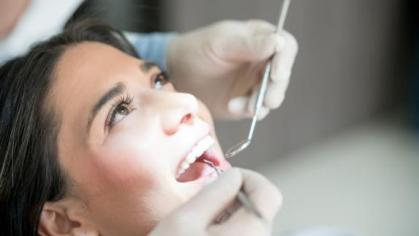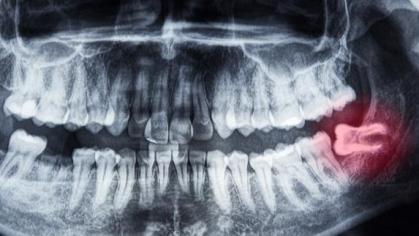The Life Changing Power of Corrective Jaw Surgery
The surgeons at Rutgers Health University Dental Associates specialize in all different types of oral and maxillofacial procedures. One of them is called orthognathic surgery, or corrective jaw surgery. Corrective jaw surgery is used to treat a range of conditions and is often a great way to alleviate pain, restore function or improve appearance. For some patients with very serious or complex cases, corrective jaw surgery can be life changing.
What is Corrective Jaw Surgery?
Corrective jaw surgery is a major form of treatment used to realign or straighten the jaw. It usually involves the use of surgical plates, screws and wires to properly reposition the face. There are many different reasons why someone might need this type of surgery. In general, it can be used to help improve the patient’s ability to do everyday things like biting, chewing, swallowing and talking. And that was exactly the case for one patient, Thainara Ramos.
Jaw Surgery in Action
Because of an untreated ear infection she had as a child that spread to her face, Ramos’ jaw had fused shut. She could not properly open her mouth, which made it difficult for her to speak and eat solid food. Her family, who was from South America, decided to take her to Dr. Vincent Ziccardi, DDS, MD, FACS, a leading oral and maxillofacial surgeon in Newark at Rutgers Health University Dental Associates. After talking to Ramos about what was going and completing a thorough evaluation, Dr. Ziccardi developed a long-term care plan to get her jaw functioning normally again.
At 8 years old, Ramos had dental jaw surgery to free up the fused jaw bones so that they could grow properly. Later, she had two additional surgeries, one at age 17 and another at age 23. This most recent procedure, to improve he symmetry of her face, utilized custom computer-generated implants. Thanks to the help of Dr. Ziccardi, Ramos is now able to eat and speak better and no longer has any facial distortion.
Other Applications for Corrective Jaw Surgery
Ramos was a unique case, but the team at Rutgers Health University Dental Associates takes on similar challenges all the time. Some other reasons why they might recommend orthognathic surgery include:
- Repair birth defects, disfigurements and injuries
- Adjust facial imbalances (small chins, underbites, overbites, crossbites)
- Alleviate pain caused by TMJ (temporomandibular joint) disorder
- Treat obstructive sleep apnea
- Enable the lips to fully close comfortably
- Correct jaw opening/closure issues, including open bite
- And more
While the idea of surgery might seem scary and overwhelming, sometimes it’s the best option if non-surgical methods can’t help. Knowing that you’re in good hands at Rutgers Health University Dental Associates can alleviate some of your worries. Some of the country’s top specialists are on our surgical team in Newark and New Brunswick, and they have access to state-of-the-art planning software and tools to make sure you get the best results possible.
Take Back Your Life
If you’re suffering from a condition affecting your mouth, head, jaw or neck, know that there is hope. Come talk to the experts at Rutgers Health University Dental Associates to see how we can help you. No matter what type of care or surgery you might need, they’ll be happy to help you take back your life. Call either the Newark or New Brunswick office today to make an appointment.



